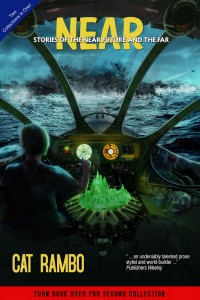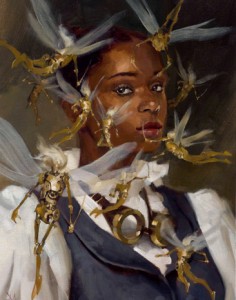 A blog post I read recently used attitude towards Robert A. Heinlein as a measurement of a person’s…I’m not quite sure what, but it seemed to be connected to their worthiness to be part of the F&SF community.
A blog post I read recently used attitude towards Robert A. Heinlein as a measurement of a person’s…I’m not quite sure what, but it seemed to be connected to their worthiness to be part of the F&SF community.
I don’t care so much about that. There are problematic aspects to Heinlein’s writing, yes, and one fascinating thing about that is that they span the range of the political spectrum. But regardless of attitude, if you want to be well-read in science fiction (by which I mean you have read much of the significant material in the field and understand at a rudimentary level where it fits in relationship to other significant works), you need to have at least a nodding acquaintance with Heinlein. And if you are looking for one work that shows his range and also includes some stories that show how marvelous a wordsmith he can be, I recommend The Past Through Tomorrow: Future History Stories.
Why do you need to have read Heinlein?
- Because a significant group of readers came to science fiction through Heinlein’s YA novels. Know the novels and you’ll have a better understanding of some of their sweet spots as well as many of the basics for writing a YA novel. Heinlein knew how to do it.
- Because he wrote so many landmarks in the field. Decades later, they’re still using the word “grok” (from Heinlein’s Stranger in a Strange Land) at Microsoft. The Moon is a Harsh Mistress and Starship Troopers are other books that are worth grabbing if you only read a few of his books.
- Because he influenced so many other writers and also interacted with and mentored many of them. Read his letters to get a sense of those interactions.
- Because he is problematic. Farnham’s Freehold is infamous for how badly it’s aged and how racist it appears today, and in some ways it showcases how a writer can fail (in my opinion) to rise above the limitations of their own world view. If you want to avoid similar traps, you need to understand where Heinlein fell into them. Heinlein has some books that I recently saw described as “squicky” and I will agree that featuring an incestuous relationship with underaged twin girls, for example, in a book does strike me as squicky — (although I didn’t note it at all when reading the book as a teen). Lolita‘s squicky too. But it’s still literature. I don’t think anyone should be shamed or scolded* for having read Heinlein or even liking his work. I like a lot of his books.
To go back to the idea of using this as a measurement of who belongs in fandom and who doesn’t: this assumption is asinine. It’s a straw man argument. If you read and enjoy science fiction, you are a part of science fiction fandom regardless of what is and isn’t your favorite. And to present this as a characteristic of some monolithic block in fandom (or use it as a way to place them outside “true” fandom) strikes me as a misguided strategy if one is genuinely trying to solve divides causing difficulties in communication.
But I digress, and in doing so I’m pulling you away from some writing that has always moved and impressed me. The story, “The Green Hills of Earth,” for instance, makes me weep and sticks with me to this day. “The Man Who Sold the Moon” is another classic, with a protagonist who is one of my personal favorites. Beyond that, the book provides a sense of the chronology of Heinlein’s universe and the events that shaped it, functioning as a sampler of of his stories.
And it holds “The Menace From Earth,” a story that so irritated me that decades later it spurred my reply, Long Enough and Just So Long.
So yeah. You should read a little Heinlein. And you should read other stuff too, newer stuff. Stuff that grew out of his works, like Bill the Galactic Hero, which was Harry Harrison’s reply to Starship Troopers, or Soldier, Ask Not, which was Gordon Dickson’s answer in turn.
*I note that this has never happened to me, but several people have recounted incidents. Your mileage may vary.





